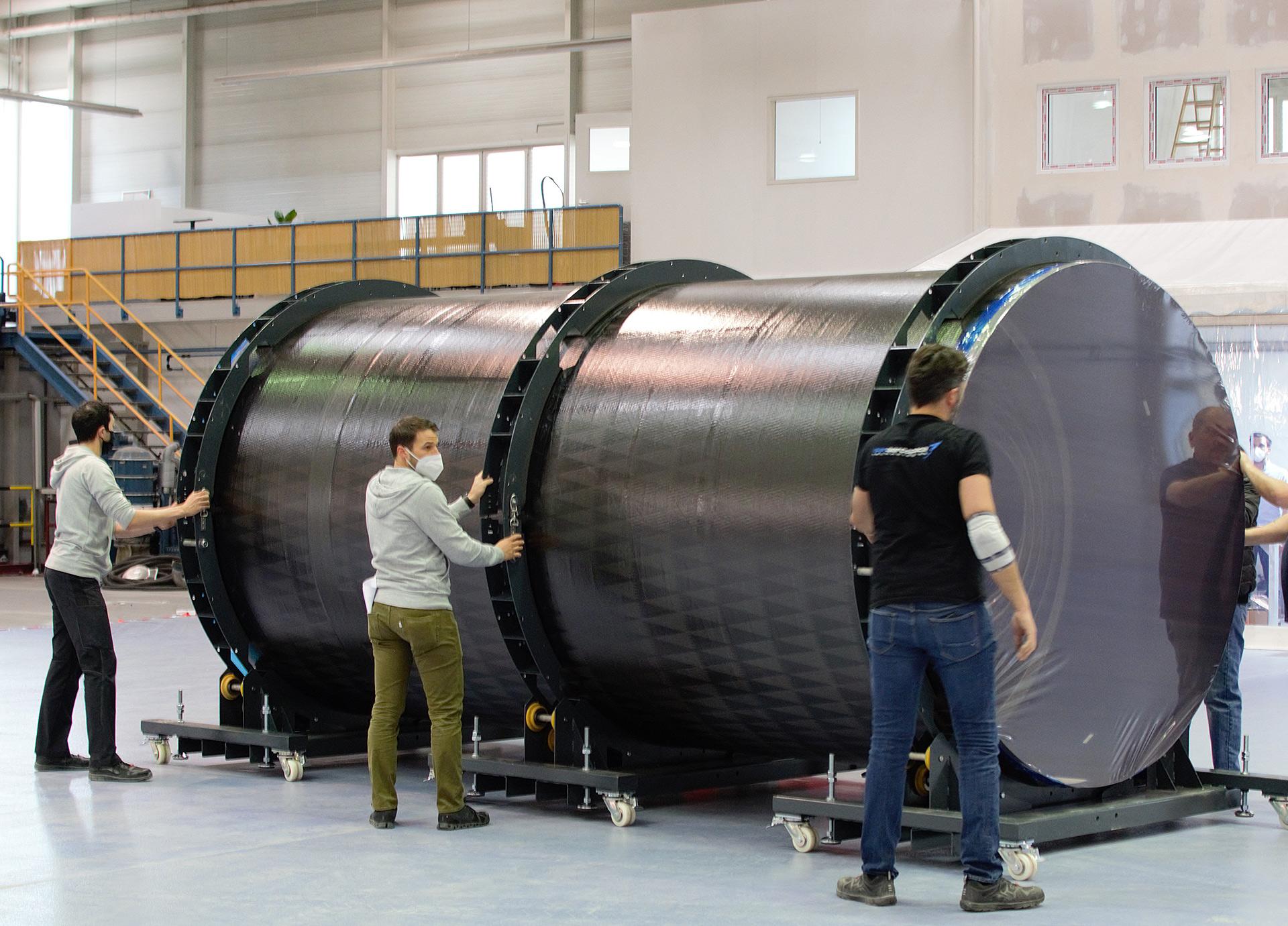A slew of launch startups have emerged in recent years to help meet growing demand from satellite providers, biotech companies and others looking to send payload to space. One such startup is Germany’s Isar Aerospace Technologies, which is focused on building orbital launch vehicles designed to carry up to 1,000 kilograms to low Earth orbit.
The startup made headlines last December – including here at TechCrunch – for scoring a $91 million Series B, the largest round to date in the European space launch scene. Now the company says it has raised an additional $75 million in a Series B extension, bringing the total round to over $165 million.
The extension round was led by HV Capital, Porsche SE and banking group Lombard Odier. Existing investors Earlybird Venture Capital, Lakestar, Vsquared Ventures, Apeiron Investment Group and UVC Partners also participated, with Earlybird subscribing the largest amount. Earlybird and Airbus Ventures led Isar’s $17 million Series A in December 2019.
Participation by Porsche SE – a major shareholder of Volkswagen – is particularly interesting as it signals growing interest from established mobility investors in connectivity and space-enabled technologies.
“As an investor focusing on mobility and industrial technology, we are convinced that cost-effective and flexible access to space will be a key enabler for innovations in traditional industries as well as for new and disruptive technologies and business models,” Porsche SE executive board member Lutz Meschke said in a statement. “Therefore, we are excited to back Isar Aerospace on its way to become the leading European small-launcher and to meet the increasing appetite for launch services.”

Image Credits: Isar Aerospace (opens in a new window)
The funding will likely provide a significant boost for continued development and manufacturing as the company nears its planned first test flight in 2022.
Isar began production of its inaugural launch vehicle, the Spectrum rocket, this year. Spectrum is a two-stage vehicle that’s designed for lightweight delivery to low Earth orbit. The idea is to create a launcher that can move quickly and at a low cost to small satellite companies. Isar is aiming to conduct engine tests in Kiruna, Sweden, and launch operations in nearby Andøya, Norway, thanks to a 20-year agreement with Andøya Space for exclusive access to one of its launch pads. Notably, Isar has already secured its first paying customer, Airbus Defence and Space, and said in a statement that it plans on announcing more contracts soon.
The startup was spun out of Munich Technical University, where co-founders Daniel Metzler, Josef Fleischmann and Markus Brandl were studying engineering. While many of the new wave of launch companies are based in the United States, Isar is leading a parallel wave in Germany.
“A competitive and diverse space ecosystem will be crucial for humanity in the decades to come,” Isar CEO Daniel Metzler said in a statement. “We are convinced that European cooperation, a level-playing field for all players, and a demand-driven approach will provide customers with access to different and internationally competitive launch capabilities for a broad spectrum of payloads. The US has shown that cornerstone contracts based on demand – instead of political parameters – are preparing the ground for innovation and growth in the space sector.”
